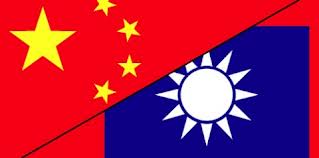Taiwan’s Kuomintang (KMT) Party, who has been forging closer ties with mainland China over the past eight years, suffered major losses in local elections last month, reflecting a general public disillusionment with the cross-strait diplomatic trends overseen by the governing party. At the New York Times, Austin Ramzy looks at fears that a return to power for the opposition and pro-independence Democratic Progressive Party, who fared well in many of last month’s local races, could significantly damage relations with the mainland:
When the opposition Democratic Progressive Party last held power, it presided over a period of tensions with the mainland, angering Beijing by holding referendums that touched on Taiwan’s relationship with China.
Beijing, which considers Taiwan part of its territory, saw those votes as possible preludes to a referendum on independence. China passed a law in 2005 approving the use of force if Taiwan formally declared independence, and American officials worried publicly about the risk of being pulled into an armed conflict with China over the island.
Now, some observers fear that a loss by the governing Kuomintang in elections to be held in little over a year could herald a return to the troubles of that era.[…] “Looking ahead to next year’s campaign, the trend is really bad for the Kuomintang, and if it’s bad for the Kuomintang, then it’s bad for the development of cross-strait relations,” said Yang Lixian, a researcher with the Beijing-based National Society of Taiwan Studies. “If the Democratic Progressive Party wins but doesn’t change its Taiwan independence platform, then this is definitely a bad signal for cross-strait relations.” […] [Source]
In March of this year, student protesters occupied Taiwan’s Legislative Yuan to express concerns about encroaching mainland influence allowed by president and former KMT head Ma Ying-jeou and his party—concerns which boiled over after the Cross-Strait Service Trade Agreement was passed without an agreed upon review. Following the widespread local defeat of KMT candidates, early this month Ma Ying-jeou stepped down as KMT chairman, quashing hopes that the KMT could in the next year add any significant agreements to the 21 signed with Beijing during Ma’s run as president. Taiwan’s next presidential and legislative elections will be held in 2016, and the DPP’s recent local successes are being considered an indicator of potential results on the national stage.








